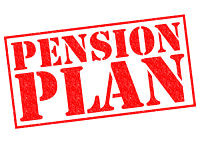
Consultation Today
- Tel: 561-686-6200
- Fax: 561-686-0303


The reduced availability of pension plans for retired people can be expected to be a major problem in the future, especially for the “Baby Boomers.”
Pensions have been replaced by 401k accounts to augment Social Security checks for retirees. For many retirees, a typical family has little or no retirement savings. Even those that do have some savings do not have much. This situation presents a picture of “retirement inequity.”
High-income workers are much more likely to engage in contribution plans such as I.R.A.’s and 401k’s. Retirement savings are irregularly distributed across and within income fifths. In middle-income homes, only fifty-two percent had 401k accounts. In 2010, high-income households, the top twenty percent, held seventy-two percent of total retirement savings accounts. College educated households hold nearly six times more retirement savings, compared with high school educated households.
Many “baby boomers” have become affluent. However, many more are less financially secure and have a lower standard of living than their parents, the Great Depression/WWII generation. The middle range of net worth for American households with heads of households in the fifty-five to sixty-four years of age was almost eight percent lower than those in the age range of seventy-five and older in 2011, the latest year for which statistics are available.
Pensions, 401k plans and I.R.A.’s have dropped on a global scale and are now comparable with retirement plans in Poland, South Africa and Brazil. A study by Mercer gives pensions and retirement plans in the U. S. a grade of ‘C’ when compared with retirement plans in twenty-four other nations on more than fifty pension and retirement indicators. Mercer reported that retirement plans in the United States received a score of 57.9, below the twenty-five nation average of 64.3. In most foreign nations, pensions and retirement systems have been improving.
Looking at the U. S. population as a whole, most retirees will be covered by Social Security. Workers in the public sector will receive pensions. A small percentage of workers in the private sector will receive pensions. However, most workers in the private sector will rely on 401k accounts. These 401k’s are small, compared with an individual’s expected needs in retirement. The unemployed and the underemployed will find themselves in the worst situation of all. It is believed that this is a major problem on the horizon. This problem has not been addressed as a public policy issue at any level of government.